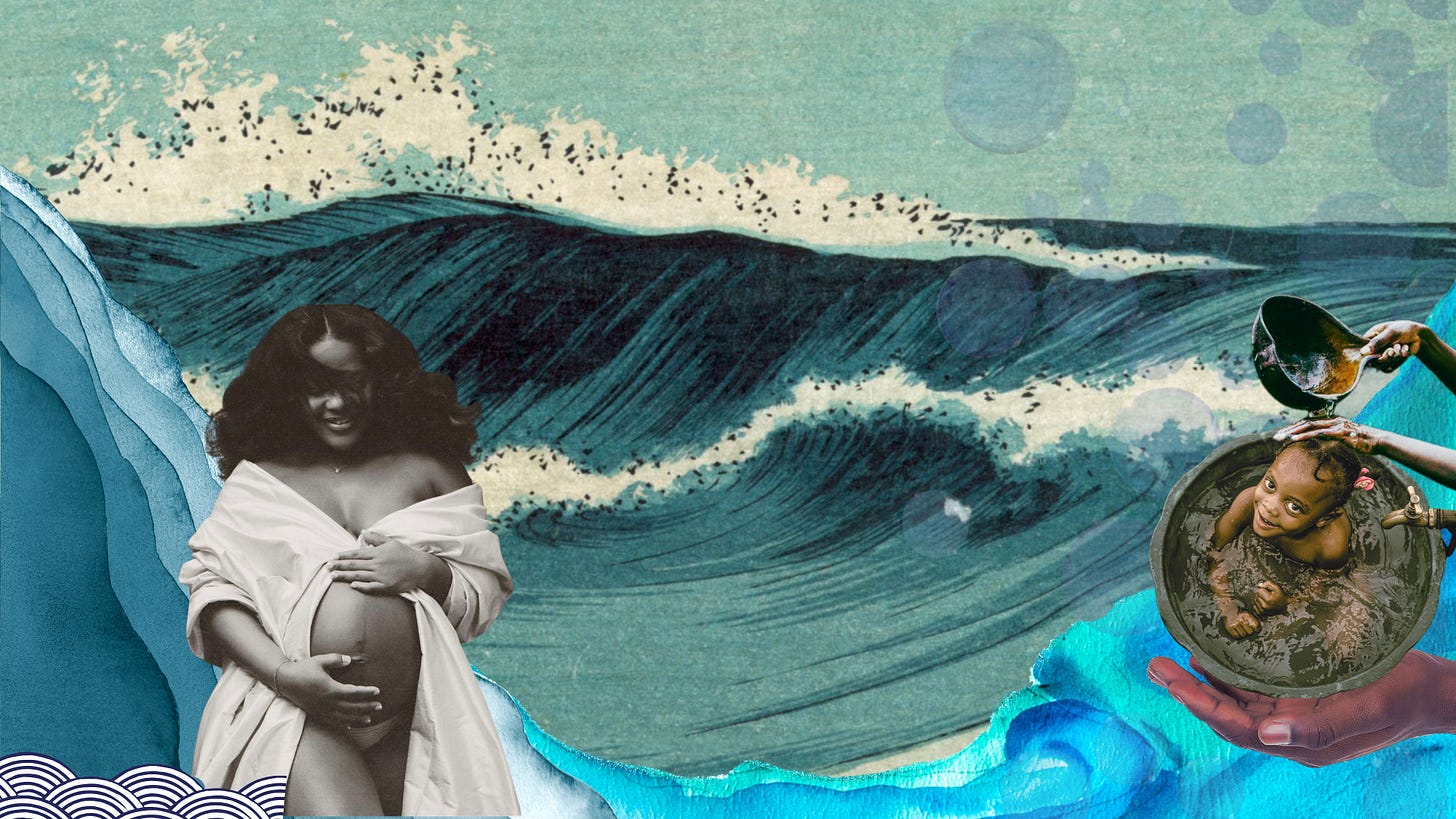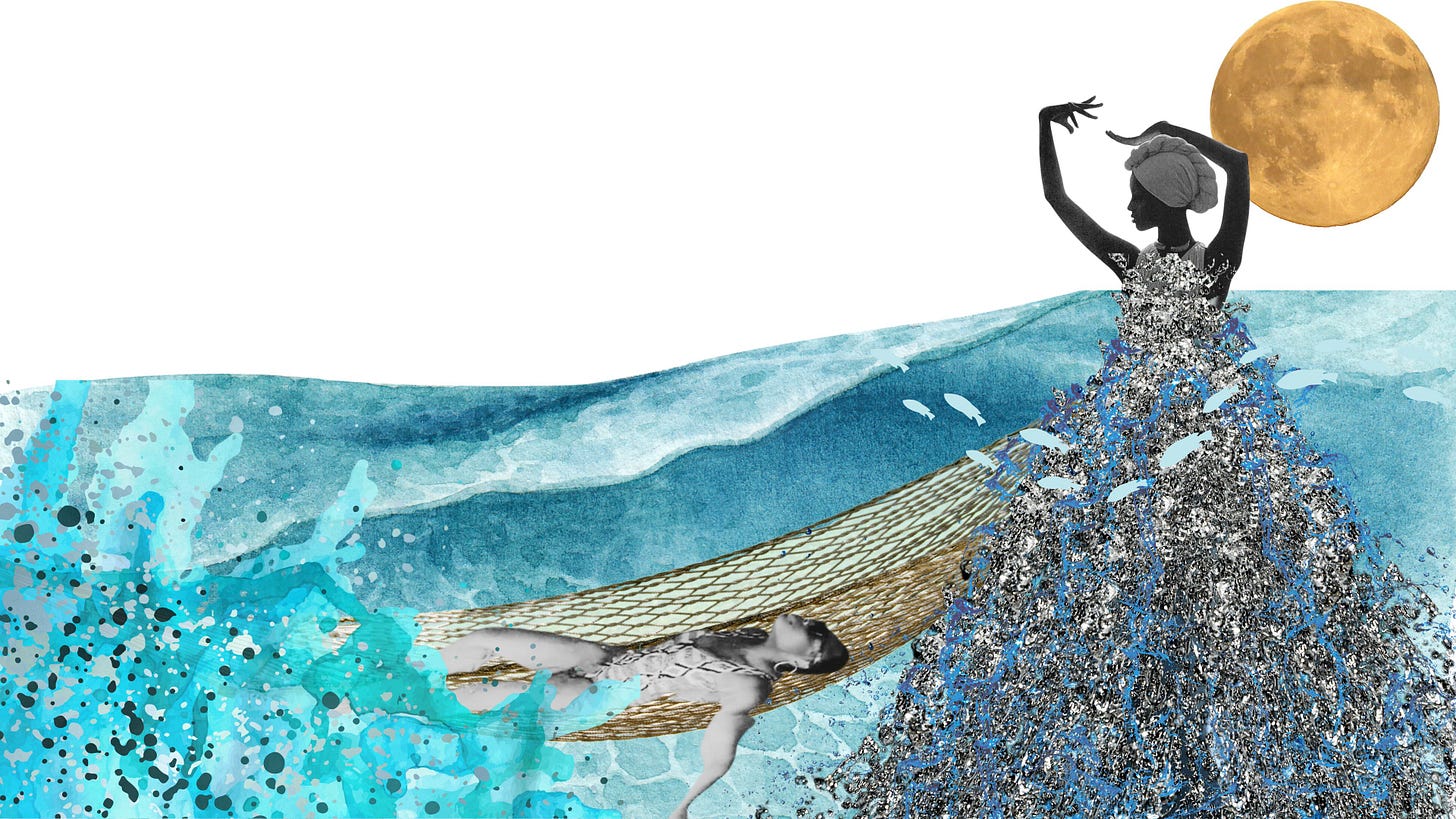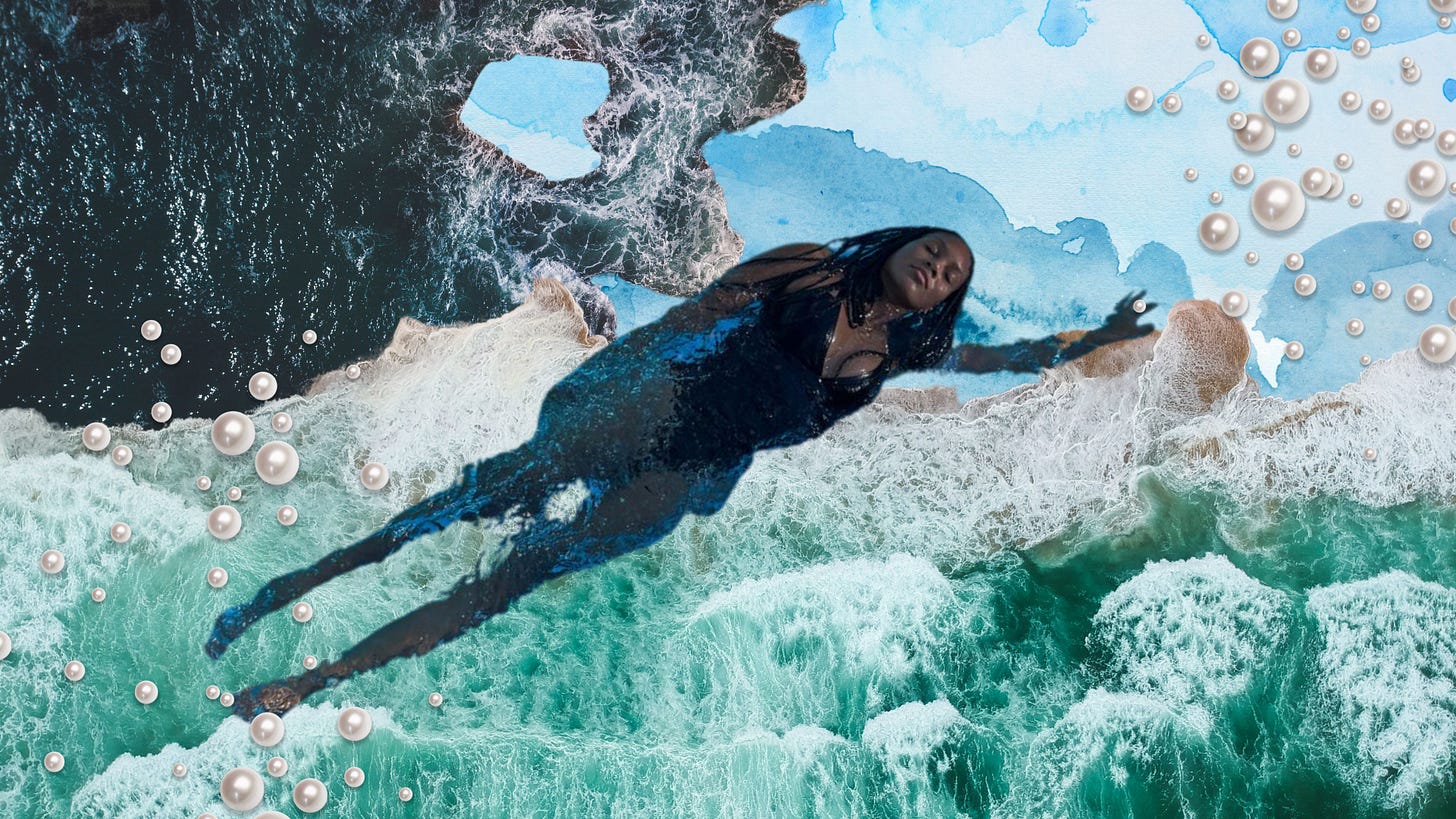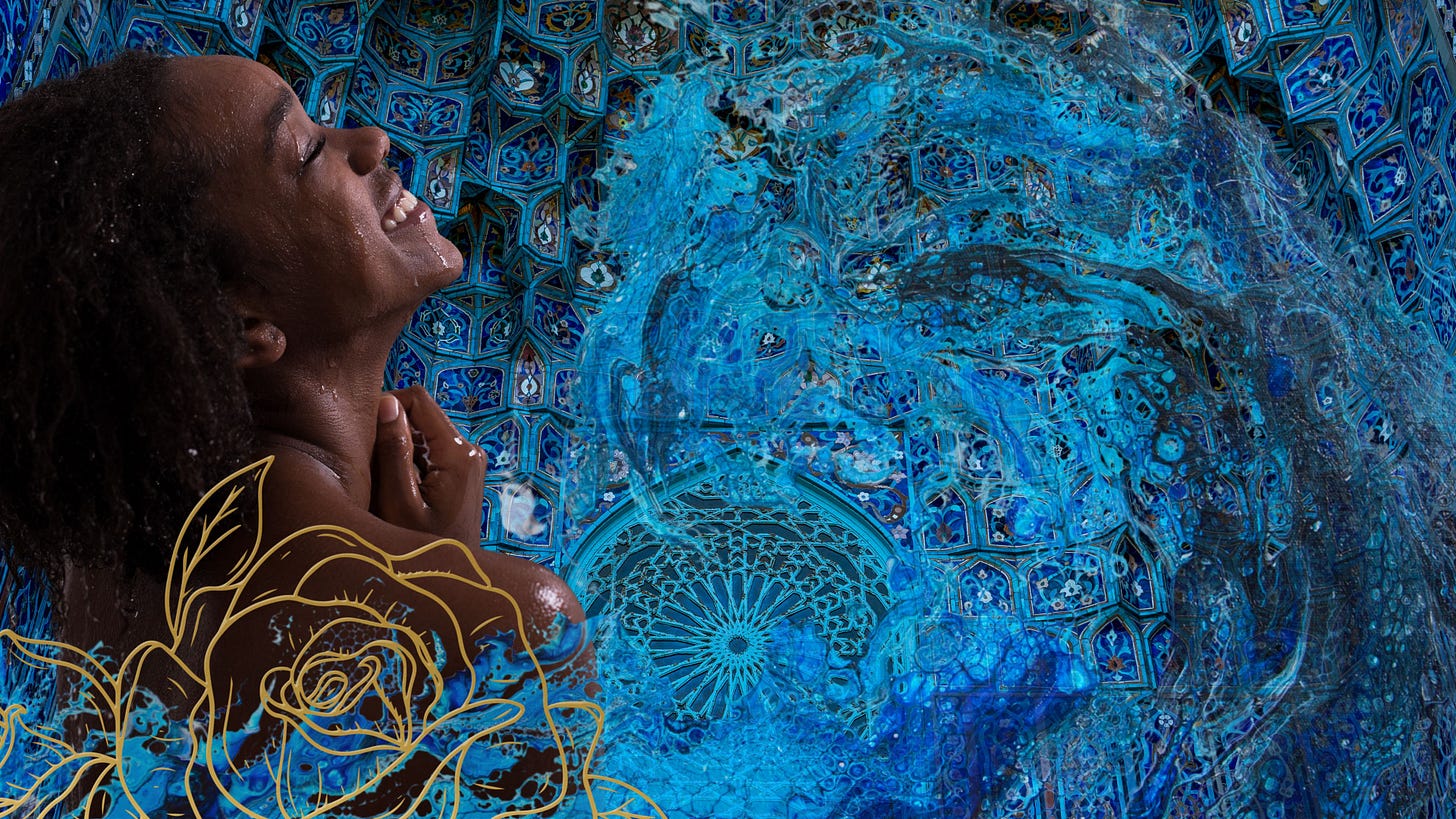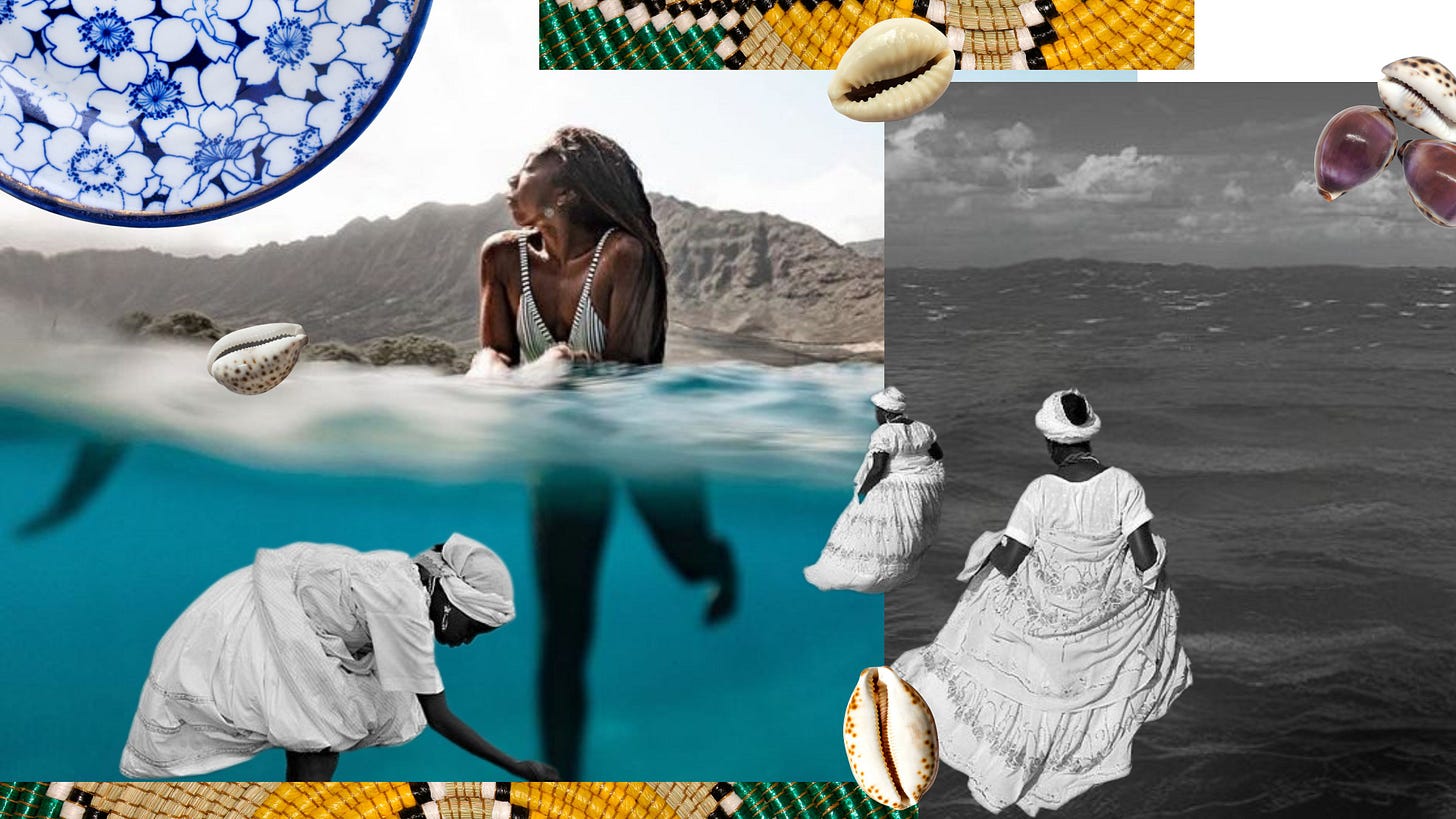Water Remembers: Reclaiming Liberation and Lineage Through Communal Soaking
Relearning [Our Bodies] Through the Ritual of Water & Honoring Juneteenth: Embracing Freedom in Sacred Spaces
Juneteenth is not only a celebration of emancipation but also a recognition of the ongoing portaling towards liberation and the importance of creating environments where Black bodies, can feel and truly be free.
In honoring this day, I acknowledge the significance of these sacred spaces in my life and the lives of many others. They are testaments to our right to rest and to exist authentically.
Let us celebrate Juneteenth by recognizing and cherishing the places that allow us to be our true selves, continuing the legacy of those who fought for the freedoms we enjoy today.
Since the fall of 2024, I’ve had a ritual: at least once a month, I submerge myself in healing waters - nude, present, and in community. These moments, spent in bathhouses, hot springs, or spas, are not about luxury or self-indulgence. They are acts of resistance, remembrance, and liberation. They are where I reconnect with my body, my Ancestors, and the elemental force that has guided me since birth: water.
My First Home
Water is my first home. Before we are born, we are held in water. We enter this world through its flow. For me, water is not just a physical necessity; it is an Ancestral pathway, a messenger, and often a mirror. If I’m seeking connection or guidance from the Ancestors, I go to water. It holds memory. It holds time. It holds us.
The science confirms what spirit has always known: water carries frequency, memory, and life. And we are not separate from that cycle. Our bodies are 70% water. The same molecules that passed through oceans thousands of years ago now pass through us. Through the omnipresent flow of death and rebirth. Water is a time traveler, a carrier of story, not a commodity, a sacred being.
Before pipelines, barcodes, and bottled water, there was only living water that we honored, offered, and sung to in ceremony. She was revered as a divine being, not extracted as a resource. In my practice, I do my best to carry that reverence forward. I do not enter a water space without acknowledging its spirit. Whether it’s a pool or a spring, I speak to the water. I thank her. I apologize for the ways her movement has been restricted, the way her divinity has been overlooked.
The African Roots of Communal Water Ritual
Across the African continent, communal bathing and water rituals have long been foundational to spiritual life, healing, and social connection. These were beyond acts of hygiene being rites of passage, offerings, and ancestral conversations.
In the ATR traditions, water deities like Mami Water, Yemoja and Ọṣhun are honored through ritual in rivers and oceans. These ceremonies invite healing, abundance, and spiritual clarity. Among the Dagara people of Burkina Faso, water represents emotional wisdom, the realm of the Ancestors.
Collective river rituals are used to release grief and reconnect with communal memory.
In many Southern African cultures, including Zulu and Xhosa traditions, sacred bathing in rivers is central to initiation ceremonies and the training of spiritual healers. Water is the bridge between the living and the spirit world.
These practices are inherently communal, reverent, and embodied. Elders bathe children. Women support postpartum mothers with herbal baths. Entire villages participate in river cleansings after communal traumas or seasonal shifts. The water both a witness and a healer.
Colonialism disrupted this sacred rhythm, criminalizing public nudity, redefining our Indigenous practices as primitive, and introducing shame where there was once only reverence. Reclaiming communal water rituals today is not just healing work; it is Ancestral reclamation and cultural thriving.
Reclaiming Black for Bodies
For Black and Brown bodies, the disconnection from water runs deep. Our relationship with the elements has been interrupted by colonization, capitalism, and systemic exclusion. We were torn from our homelands by crossing oceans in chains. We were barred from beaches, pools, and national parks through Jim Crow laws and redlining. Even today, access to sacred, natural spaces is often gated by high fees, distance, or coded policies.
These experiences leave residue in the body. They built generational trauma around land, water, and our elemental selves. And yet, I believe in reclamation. I believe in remembering. Water calls us back home to ourselves, to our Ancestors, and to the wholeness that still lives within us.
Healing Through Communal Nudity
When I first entered a nude spa in Denver, I didn't expect the experience to be so transformational. But something shifted in me. In my Black, round, unhidden body, I sat in water. No clothes. No armor. Just presence. Just breath. I felt free.
This kind of embodied liberation is difficult to describe. It’s a deep unlearning of shame. A quiet return to self. And when I do it in community, with friends I trust, with laughter or silence, an intentional ceremony.
Each monthly, a friend and I host silent (space) soak. We call in the Ancestors, acknowledge the four directions, and simply sit in the water. Being present. No talking for 45 minutes. Just listening. Feeling. Remembering. Afterward, we gather in the mud or crystal room to share what came up. Sometimes it’s laughter, sometimes a shedding. It is always aligning. It is always communal.
Other times, I go just to chat, laugh, and connect. That, too, is its own ceremony. The intimacy of sitting unclothed with friends, without judgment or performance, is profound. Feel and authentic. It invites us into new levels of platonic love and body acceptance. A soak in communal intimacy.
Safe and Brave Spaces
While these spaces have been powerful for me, I also hold space for those who aren’t ready yet. Body liberation takes time. Many in our community carry deep wounds - microaggressions, fatphobia, sexual and gendered violence. The idea of being nude in public, even in a wellness setting, can feel terrifying.
That’s why I dream of BIPOC-owned and led bathhouses. Spaces where our bodies are centered and safe. Where we can ease back into our skin without hypervigilance. Where Ancestral reverence is embedded in the architecture. Where rest, nudity, and healing are normalized.
There’s a saying I come back to often: safe spaces are where we land; brave spaces are where we leap. I believe we need both. We deserve both.
In Rest Is Scared, Octavia F. Raheem writes:
“The water is a medium to reconnect us to our elemental nature, to freedom, to healing through joy after generations of unspeakable suffering.”
I think of this often. I think of my own joy as a child in swim class, rushing to the front of the line to jump in again and again. That child knew what I am now reclaiming: water is joy. Water is where we heal lineage. Water is where we begin again.
An Invitation
Communal bathing isn’t new. It’s ancient. Korean jjimjilbangs, Russian banyas, Turkish hammams, all honor this tradition. And so does the African continent. These were our practices too. We honored water, bathed in rivers, and healed in the company of kin.
Despite what we’ve been told (or may be assumed), these spaces are not just for the elite. Many are accessible, with day passes around $30–$35 for unlimited hours.
If you feel the call, if your spirit is thirsts, I invite you to explore. Start small. Visit a local bathhouse. Dip your toes in a spring. Sit by a river. Enter with reverence. Speak to the water. She is waiting. She remembers.
And so do you.






